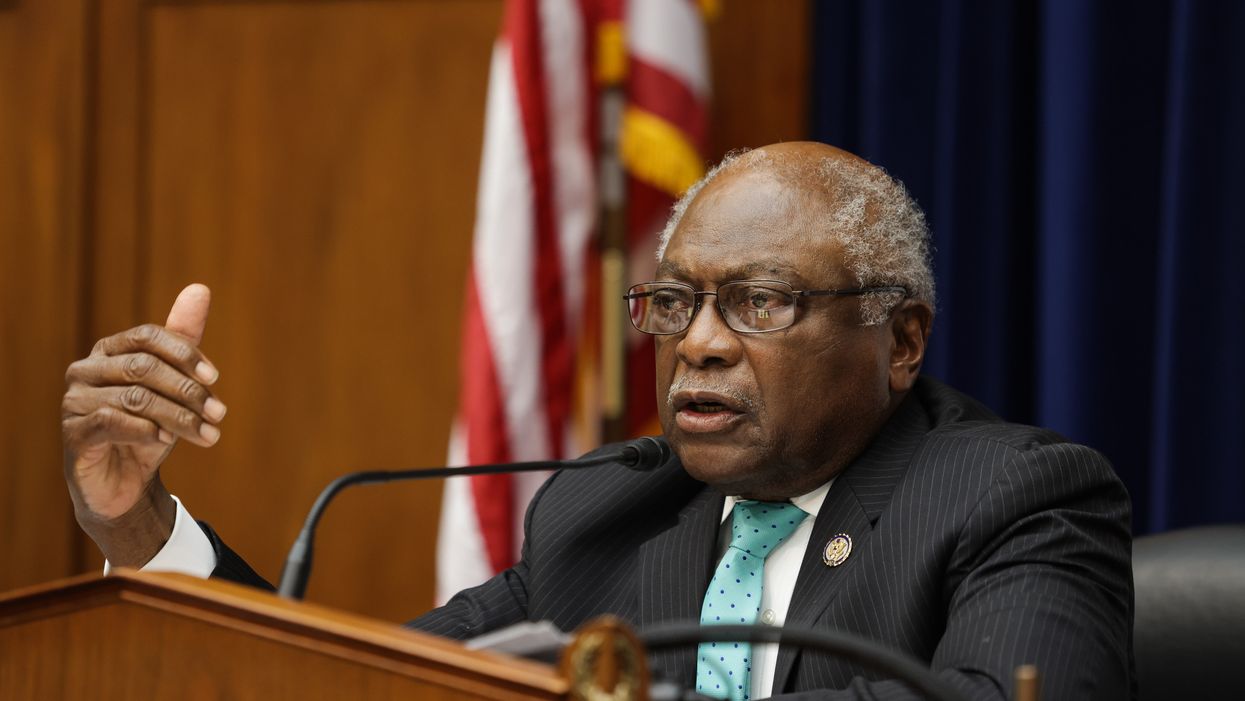Congressional Democrats this week moved to focus heightened concern about election preparedness on four of the biggest battlegrounds: Texas, Florida, Georgia and Wisconsin.
The majority of a special House committee, created this spring to oversee the government's response to the coronavirus pandemic, issued a report Wednesday focusing their apprehension on the limits of mail-in voting, poll worker shortages and safety of polling places in those states — with a combined 93 electoral votes central to the campaign strategies of both President Trump and Joe Biden.
The report by the Select Subcommittee on the Coronavirus Crisis, which no Republicans signed, urged the states to spend quickly and generously to fix the problems — something they are unlikely to be able to do without a cash infusion from Congress itself, which looks less likely every day.
The GOP-run Senate, Trump administration and Democratic House have been deadlocked for two months on the size and scope of another coronavirus economic recovery package, meaning the $3.6 billion in election aid the states have been seeking (or, more likely, a small fraction if it) is not close to being delivered in time to smooth the logistics of an election that is just 54 days away and will turn on the record use of voting by mail.
"The states face the risk of serious problems in the general election," the report said. "In some of these states, these risks are exacerbated by state policies restricting mail-in voting and early voting."
Last month, the panel sent letters to chief election administrators in the four states requesting information about their general election plans.
"With just two months left before the general election, states cannot simply defer to local election officials to address these problems. Instead, states should move swiftly and proactively to implement CDC recommendations and ensure a free, fair, and safe election," the subcommittee wrote, referring to a report issued in June by the Centers for Disease Control and Prevention.
All four face significant shortages in poll workers, and officials have not done enough to boost recruitment, the panel found. Georgia has said it needs 20,000 people to staff precincts Nov. 3 but the state has only filled a quarter of these positions so far.
Georgia officials also decided not to send all 7 million voters an absentee ballot application, like they did for the primary. This change could lead to confusion and potential disenfranchisement, the panel concluded.
Since Florida's March presidential contest and August primaries, state officials have not done enough to address long wait times or poll worker shortages, the report found. The state also lacks a sufficient early voting period.
Texas is one of just six states, and the only one that's competitive in the presidential race, that has not relaxed its restrictive excuse rules for absentee voting in response to the risks of voting in person posed by Covid-19. Half of the state's 254 county election officials also indicated concerns about not having enough people to work the polls.
Long lines and polling location closures in Wisconsin's April primary raised concerns for how the state will conduct its elections this fall. To help with staffing shortages, state officials have requested 1,100 National Guard members to be deployed as poll workers. But the subcommittee warned this could lead to voter intimidation, "especially given the history of law enforcement suppressing the votes of people of color."
During a hearing Wednesday where the report was released, panel Chairman Jim Clyburn of South Carolina, a senior member of the House leadership and one of Biden's most influential backers, urged passage of additional funding to assist state elections and the Postal Service. (Grants totalling $400 million have almost all been spent since Congress delivered that money in March.)
Conducting a "free, fair and safe election in these circumstances is a challenge, but let there be no doubt if we all do our part America is up to the challenge," Clyburn said.
He also lambasted the president for resisting the additional money on the grounds it would allow for more voting by mail, which he asserted without evidence will create so much fraud that the November results can't be trusted — the first ever such denigration of democracy's basic function by an American president
"The evidence shows Americans are more likely to get struck by lightning than to conduct voter fraud by mail," Clyburn said.
Not so, responded Steve Scalise, the GOP whip and one of Trump's most important allies at the Capitol. "We don't want a recipe for disaster where we literally would be counting ballots weeks and weeks later," he said.




















Trump & Hegseth gave Mark Kelly a huge 2028 gift